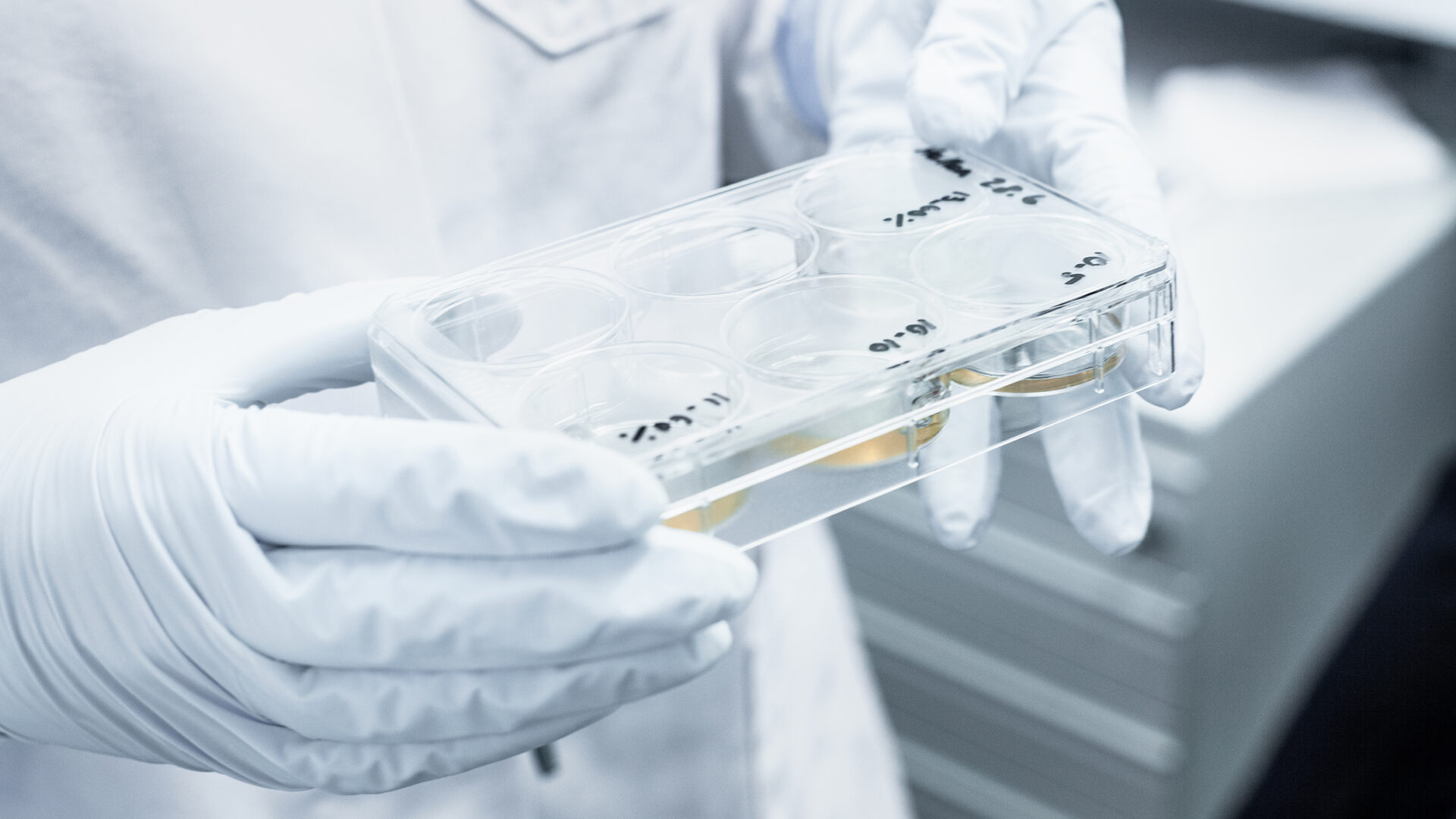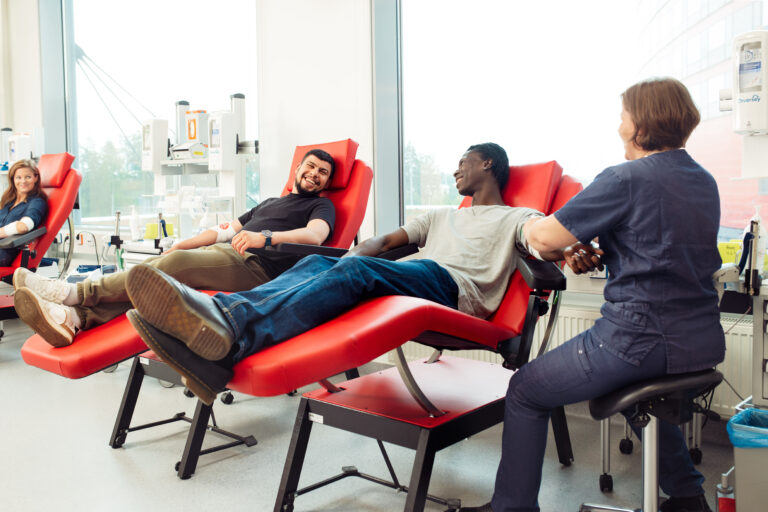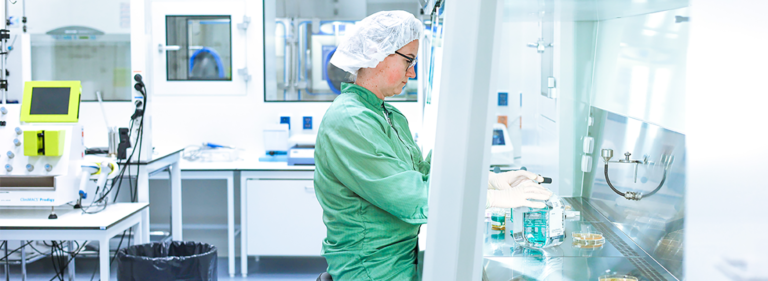The Finnish Genomics Initiative FinnGen enters its next phase with 52M€ of new funding
The FinnGen research consortium has successfully collected and generated genomic data from 500,000 individuals. Now, the project will continue its search for genetic clues to disease progression and explore the biological mechanism of the genetic signals uncovered in the first stages of the project. In the FinnGen project there's also genome data produced from blood donors in the Blood Service Biobank.

Since its initiation in 2017, the FinnGen study has developed into one of the world’s leading biobank-based genomic research projects. FinnGen has now completed the construction of a research resource that integrates genomic information from half a million Finnish biobank participants with decades of national health registry data.
In addition to an unparalleled lifelong view on health and disease, a unique aspect of FinnGen is its broad public-private collaboration model. The research consortium, led by the University of Helsinki, includes 15 Finnish academic partners and 13 international pharmaceutical companies.
All of the partner organisations have now signed the new FinnGen 3 consortium agreement covering the next phase of the study. The agreement secures approximately 52 million euro in new international investment to the Finnish health research ecosystem.
With the previous funding period ending in August 2023, the consortium already looks forward to implementing the ambitious new scientific plans over the following four years.
“We are thrilled to enter the next exciting chapter of FinnGen and move from the data resource construction and gene identification phase to the phase of understanding disease mechanisms and disease progression, to enhance drug target prioritisation”, says FinnGen’s Scientific Director, Professor Aarno Palotie from the Institute for Molecular Medicine Finland (FIMM), University of Helsinki.
One of the unique aspects of FinnGen is that in addition to public funding, the project is supported by 13 biopharmaceutical companies and shares its scientific goals with its academic and industry partners. The FinnGen study is thus ideally situated to address fundamental research questions with the potential to aid the development and delivery of new drug therapies.
“At Bristol Myers Squibb, we see a direct link between a deep understanding of human genetics, paired with access to rich clinical and molecular data, and our ability to deliver medicines that can have a transformational impact for patients. Continued progress with FinnGen will help accelerate drug discovery by providing robust knowledge about the genetic and molecular factors that drive disease biology and progression”, says Joseph Maranville, Scientific Senior Director, Informatics and Predictive Sciences, Bristol Myers Squibb, the pharma co-chair of the FinnGen steering committee.
From genetic discoveries to a fundamental understanding of health and disease
FinnGen has earlier demonstrated that the identification of novel disease-associated variants is possible with a much smaller number of patients in Finland, than elsewhere in the world. Due to its unique geographic position and linguistic isolation, the modern Finnish population, despite being broadly similar to Europeans genetically, has an unusual and large set of genetic variants rarely found elsewhere in the world.
During the past few years, the FinnGen resource has been successfully deployed in genetic discovery activities and the research community has identified more than a thousand medically relevant genetic variants, including novel risk-causing and protective variants for both common and rare diseases.
The future activities will address a key challenge that has hindered the transition of genetic discoveries into novel medicines and diagnostics: understanding the biological processes that are involved in disease initiation, progression, severity and therapeutic responses.
“FinnGen 3’s groundbreaking research, coupled with the invaluable contribution of the Finnish biobanks, empowers the seamless integration of genomic breakthroughs into everyday clinical practice and preventive medicine, propelling Finland to the forefront of global personalised healthcare”, says the academic co-chair of the FinnGen steering committee, Professor Markus Perola from the Finnish Institute of Health and Welfare.
During the next four years, FinnGen will engage in studies that are expected to enhance our understanding of the longitudinal aspects of health and disease, with the hope of discoveries that could lead to ways to influence disease progression. For this, the consortium will get access to historical biological samples and additional health care data types, including extensive clinical laboratory values and information about hospital-based medications.
In addition, FinnGen will study the biological consequences of disease-associated variants that are specific to the Finnish population by profiling samples from carriers of such variants.
The new molecular and clinical data will be combined with the existing data resource to allow further scientific breakthroughs.
“After successfully building the unique FinnGen data resource, now the aim is to leverage new findings that, in combination with other international studies, can move the field forward and provide tools for improving disease prevention, treatment and finally personalised health care”, Aarno Palotie concludes.
About FinnGen:
The FinnGen study, launched in the autumn of 2017, is a broad academic-industrial collaboration between the Finnish biobanks and their respective universities and wellbeing service counties, the Finnish Institute of Health and Welfare (THL), the Finnish Red Cross Blood Service, the Finnish Biobank Cooperative – FINBB and thirteen international pharmaceutical companies. The current phase of the study is being supported by AbbVie, AstraZeneca, Biogen, Boehringer Ingelheim, Bristol Myers Squibb, Genentech, a member of the Roche Group, GSK, Janssen Biotech, Inc. (part of the Janssen Pharmaceutical Companies of Johnson & Johnson), Maze Therapeutics, MSD (the trade name of Merck Sharp & Dohme LLC), Novartis, Pfizer and Sanofi. These companies also funded phases 1 and 2, along with Business Finland. The academic organisation responsible for the study is the Institute for Molecular Medicine Finland FIMM at the University of Helsinki.



